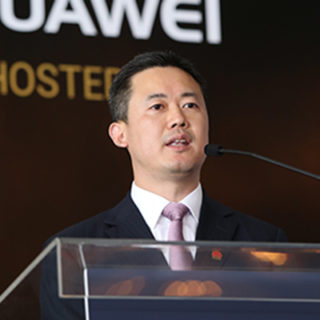 EMC recently announced the results of its latest research entitled, ‘The Information Generation: Transforming The Future’ that explores the impact of a growing global community of digital citizens.
EMC recently announced the results of its latest research entitled, ‘The Information Generation: Transforming The Future’ that explores the impact of a growing global community of digital citizens.
The research, which was based on input from 3,600 Director-to-C-Suite business leaders across 18 countries including the UAE and Saudi Arabia, reveals new expectations of individuals in today’s world who are always connected and engaged online. It also identifies the fundamental business attributes critical for organisations to successfully compete and thrive in this new landscape.
Majority of respondents in the UAE and Saudi Arabia (99 percent) report that recent technological advances have impacted the way that their organisation does business.
62 percent agree that the rapid adoption of mobile, social, cloud and big data technologies is changing customer behaviour and creating a new digital world, whereby organisations must adapt in order to stay competitive.
Mohammed Amin, Senior Vice President for Turkey, Eastern Europe, Africa and Middle East at EMC Corporation, “The combined forces of cloud, social, mobile and big data have led to the emergence of what we like to call the ‘Information Generation’. Whether they’re working, keeping fit, learning, playing, purchasing online or watching TV, these digital citizens are creating new demands for the businesses they deal with. The results of the Information Generation Study are clear evidence of the significant impact that combined forces of cloud, social, mobile and big data have created for businesses everywhere. Even in the region, the emergence of ‘digital citizens’ necessitates the need for enterprises to revisit their strategies and redefine themselves to meet this massive shift in expectations, adapt and succeed in the future.”
The study also highlights that the demand for better use of data and insight is coming from both internal and external forces. Internally, the demand is most likely to come from the IT department (47 percent), finance (37 percent), the IT department (47 percent), marketing (32 percent) and the C-suite/board level (28 percent), and externally from competitors (40 percent) and customers (36 percent).
Due to the new Information Generation-driven demands, businesses agree that transformation is critical. Business leaders have identified five “make-or-break” business attributes, all of which have information at their core. While business leaders in the UAE and Saudi Arabia agree the below are high priority, they admitted that very few have thoroughly embodied them.
While 63 percent of respondents agree that having access to relevant information and insights would improve decision making. However, access to information is not without challenges, to which the study revealed the following – 33 percent admit they are drowning in information overload; 31 percent of respondents state that the abundance of information helps them learn what they need to do, but leaves them unable to turn the ‘learning’ into actionable results; and 22 percent percent said that the abundance in information has improved their ability to do their job.
The study also highlighted key factors hindering the effective use of data such as, challenges within a certain organisation’s culture that inhibits them to effectively use data (40 percent), security concerns (36 percent), resources and workload constraints (34 percent), and lack of in-house expertise (31 percent).
Gartner and IDC predicts that by 2020 more than 7 billion people on at least 30 billion devices will have created 44 zettabytes of data (or 44 trillion gigabytes). Which implies that the world is heading toward a future where nearly every element of life will be data-driven.
According to the study , 68 percent of respondents believe that over the next five years digital technologies will have a direct impact on the way they do business with their customers and 36 percent believe that a forward thinking technology strategy must be customer focused.















